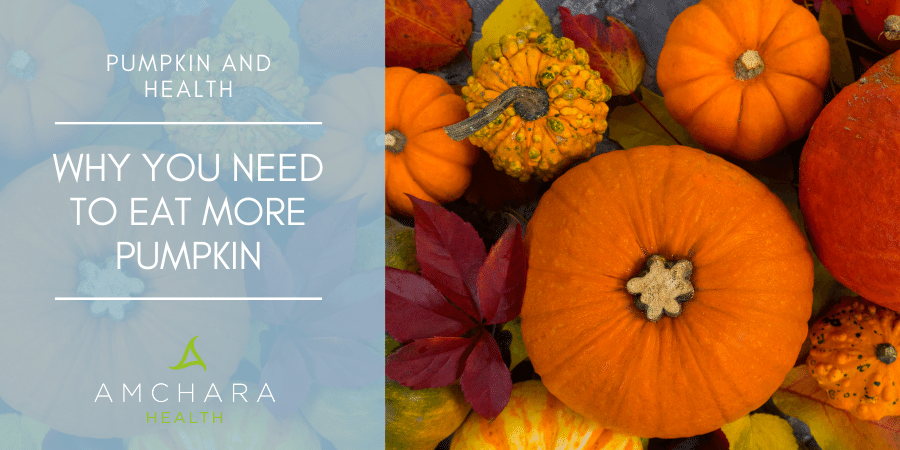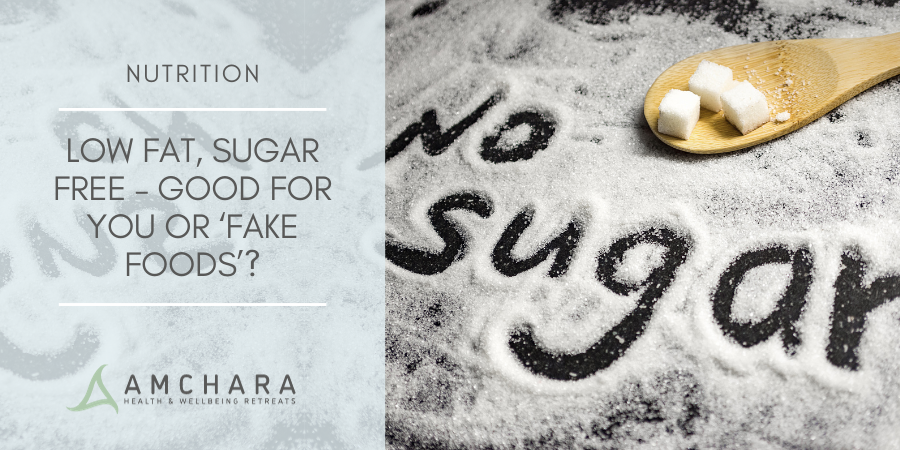Topics covered in this article:
Pumpkin and squash are in abundance throughout autumn and their rich vibrant colours are warming and appealing. The most popular time of the year to buy a pumpkin is at the end of October, to carve for Halloween – sadly many of these pumpkins aren’t actually eaten. This is a real shame as pumpkins are rich in a variety of health giving nutrients and offer many benefits. What’s more, they are delicious.
In this article we take a look at why pumpkins are so good for you and crucially – what to do with them.
A bit of history
Although pumpkins typically reside in the vegetable section of shops, they are actually a fruit and belong to the same family as courgette, cucumbers and melons. Traditionally, pumpkins were used for a variety of different reasons. They are useful as their hard skin helps to maintain freshness and they don’t spoil as easily as some other fruit or vegetables.
In terms of traditional medicine, pumpkins were used in several issues including immune support and conditions involving pain and inflammation. Science is now finding that the many instinctive traditional uses of certain fruits and vegetables may be down to specific nutrients.
Pumpkin nutrition
Naturally low in calories, pumpkins only contain around 20 Kcal per 100g. They are low in fat, rich in fibre and pack a mighty punch when it comes to vitamins, minerals and other plant nutrients.
Nutrients in the flesh of pumpkin
- Potassium – this mineral is needed for healthy nerve and muscle function as well as fluid balance and has been seen to influence a healthy blood pressure (1).
- Vitamin C – a well known immune supportive nutrient that also supports collagen in tissues such as ligaments, tendons, cartilage and bones. A potent antioxidant, vitamin C offers much protection for the body and can contribute to combating oxidative stress. This is a situation where natural body defences are overwhelmed and unable to maintain protection from damaging molecules.
- Carotenoids – one of the reasons pumpkins and squash come in such vivid oranges and yellows is the presence of beta carotene. Beta carotene can be converted in the body to vitamin A which is important for skin health, immunity, healthy vision and reproductive function.
- Some research is showing that beta carotene may have health benefits of its own and as a powerful antioxidant it has been studied for its potential benefits to the immune system (2). A higher dietary intake of beta carotene is associated with a reduced risk of death from many health related issues (3).
- Polysaccharides and phenolic compounds – studies indicate that a good intake of these compounds may have anti-diabetic effects (4, 5).
Benefits of pumpkin seeds
Pumpkin seeds are a good source of protein and contain a myriad of nutrients that contribute to good health. They are rich in minerals like zinc, copper and magnesium. Magnesium is known as a natural relaxer and may aid in muscle tension, stress and fatigue.
Pumpkin seeds also contain the mineral chromium which has an essential function when it comes to insulin and blood sugar control.
In addition to this they contain compounds called lignans, known to aid in hormone balance. A good intake of dietary lignans is thought to have anti-inflammatory and anti-cancer effects (6).
A number of anti-fungal proteins have been isolated in pumpkin seeds (7). A compound called moschatin has been discovered which may have some potent anti-cancer effects (8). A good dietary intake of pumpkin seeds has been associated with a lower risk of stomach, breast, lung and colon cancers (9).
Benefits of pumpkin seed oil
Pumpkin seeds contain over 40% oil, mostly made up of the unsaturated fats oleic acid (omega-9) and linoleic acid (omega-6). Unsaturated fats in the diet have been linked to better cardiovascular health.
A specific beneficial effect on cholesterol was seen in post-menopausal women taking pumpkin seed oil, and in addition to this blood pressure was lowered (10). The same study also reported the women had a reduction in menopausal symptoms. This may be due to the fact that pumpkin seed oil contains plant oestrogens, known to impact female hormone balance.
The benefits to hormone health aren’t limited to women – men with benign prostatic hyperplasia (BPH) taking pumpkin seed oil were shown to have fewer urinary symptoms. This effect was magnified when pumpkin seed oil was combined with the herb saw palmetto (11).
Other areas of urinary health also benefit, and improvements have been seen in overactive bladder syndrome (12).
It is clear from the evidence that including pumpkin in the diet can bring significant health benefits. Apart from pumpkin pie, which is often laden with sugar or sugar substitutes, how can pumpkin be incorporated into meals?
Let’s take a look at some ideas:
Flesh of the pumpkin
- Roast with rosemary and black pepper – a simple but effective way to add pumpkin or squash to a meal is to gently roast with herbs and serve as a side dish. Roasting in oils helps with absorption of the fat soluble carotenoids.
- Add an extra lasagne layer – slice thinly and use crescent moon shapes to add an extra nutritious layer in a lasagne or use as a replacement for a pasta sheet.
- Simply steam – cut into 2cm cubes, steamed pumpkin makes a great accompaniment to fish and chicken dishes.
- Mash with garlic and organic grass fed butter for a creamy alternative to potato mash.
- Make a spicy vegetarian tray bake – sliced pumpkin and red peppers mixed with a curry paste and brown lentils is a hearty autumn dish.
- Make a warming soup – pumpkin, roasted red pepper, carrot and coconut milk soup can be spiced up with the addition of chilli to create the a delicious carotenoid rich soup.
- Make a vegan bake – roast half a small squash or pumpkin until tender and fill with quinoa and mixed vegetables.
- Be sneaky – grate pumpkin flesh into soups, stews, casseroles and sauces. It will soften deliciously, and you won’t even know it is there.
Pumpkin seeds
- Toast lightly and sprinkle on salads, breakfasts or desserts or just snack on a handful on their own.
- Pumpkin seed butter makes a great spread for oatcakes or crackers. It can be stirred into smoothies or protein shakes.
Pumpkin seed oil
- Drizzle on to salads, especially tasty with a roast pumpkin and kale salad.
- Add a tablespoon into a smoothie.
- Drizzle over a warming hearty soup alongside chopped herbs.
- Pumpkin seed oil can also be stirred into cooked food but avoid using it in cooking as heat damages the delicate unsaturated fats.
This doesn’t need to be the end of the article!
With your comments we’d love to continue the conversation.
Let us know your top tips to make the most of pumpkins and squash.
Read this next:




